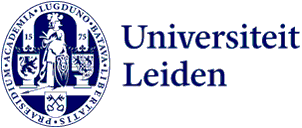
Matthijs van Leeuwen: 'I want to teach students responsible data science'
Computer scientist Matthijs van Leeuwen is one of four science faculty members who obtained the Senior Qualification in Education in 2021. What was that like and what drives him? ‘In my own education I would have liked to see more attention paid to the responsibility that machine learning and data mining entail.’
Can you give an example of successful teaching? ‘In the master's course Information Theoretic Data Mining, which is attended by a maximum of twenty students, I achieved a satifying structure, working from their questions and providing personal feedback that they could immediately apply. First, I laid a foundation with some lectures. The second step was that the students themselves learned more by reading articles and doing technical analyses.
Then I organised seminars on their own questions that they sent in beforehand. Step four was that the students had to present their papers and finally, they had to write their own scientific essay. In the meantime, they received personal feedback which they could incorporate in their final product. The great thing here is that students were actively engaged in learning. Their evaluation of the course was also very positive.’

What else do you find important in your teaching? ‘As a teacher and also as programme manager of AI and data science education, I want to teach students responsible data science. Suppose you want a bank to use a certain data model to determine whether someone can get a mortgage. You then have that algorithm learn from historical data, which were based on decisions made by people. People discriminate, so if you're not careful that algorithm will do the same.
I would have liked to see my own education pay more attention to the responsibility that machine learning and data mining entail. I think it's important that students not only learn how to work with techniques, but also that they develop a critical attitude. I always pay attention to this in my own lectures, but we also organise guest lectures on ethics in AI, for example.’
Do you have an advice for others considering the SKO trajectory? ‘If you have a heart for education, it is certainly advisable. Make sure you really have the time and opportunity to reflect on your work as a teacher. You can get a lot out of this trajectory, but you shouldn't be busy writing an application for a research grant at the same time. I could really make time during the summer last year to shape my portfolio. The sessions organised by ICLON were of great value in improving it further.’
What did you find the most interesting part of the SKO project? ‘The ICLON pairs you with another candidate in each round. You then give feedback on each other's portfolio. For example, I was paired with Bart Krans, Professor of Civil Law and Civil Procedure. Beforehand, I thought: I have little interest in that field. But his approach made me enthusiastic. If you were to present the subject in this way, I would also like it.’
You think education is really important. You are also a research leader. How do you manage to give education the attention it needs? ‘It is important not to want to do everything at once. Sometimes you have to be able to say no. But here at LIACS I also notice that education is found really important. Fellow lecturer Frank Takes and I have both been through the process, and there was clear support from the institute. In September, we will both become programme directors, Frank of the bachelor and I of the master programmes.’
Do you already have an idea of what you want to tackle first? ‘We want to inform students better about the content of the study and the optional subjects. Computer Science is a popular study, with a diverse population of students. Students do not always know, for example, that the programme involves a lot of mathematics and that it is a requirement that you can already program when you start. For master's students, I want to develop video pitches about all electives, which make it perfectly clear what the subject entails. Then students can put together their study package in a well-considered way.'
Senior Taching Qualification (SKO)
Every year about fifteen lecturers at Leiden University obtain an SKO. This qualification shows that you are didactically and educationally strong and that you contribute to the development of education beyond your own subject or department. Senior lecturers are eligible on the basis of their CV, reflection and portfolio. The programme includes three inspiration sessions and, if desired, individual coaching. Read more>
Text: Rianne Lindhout
